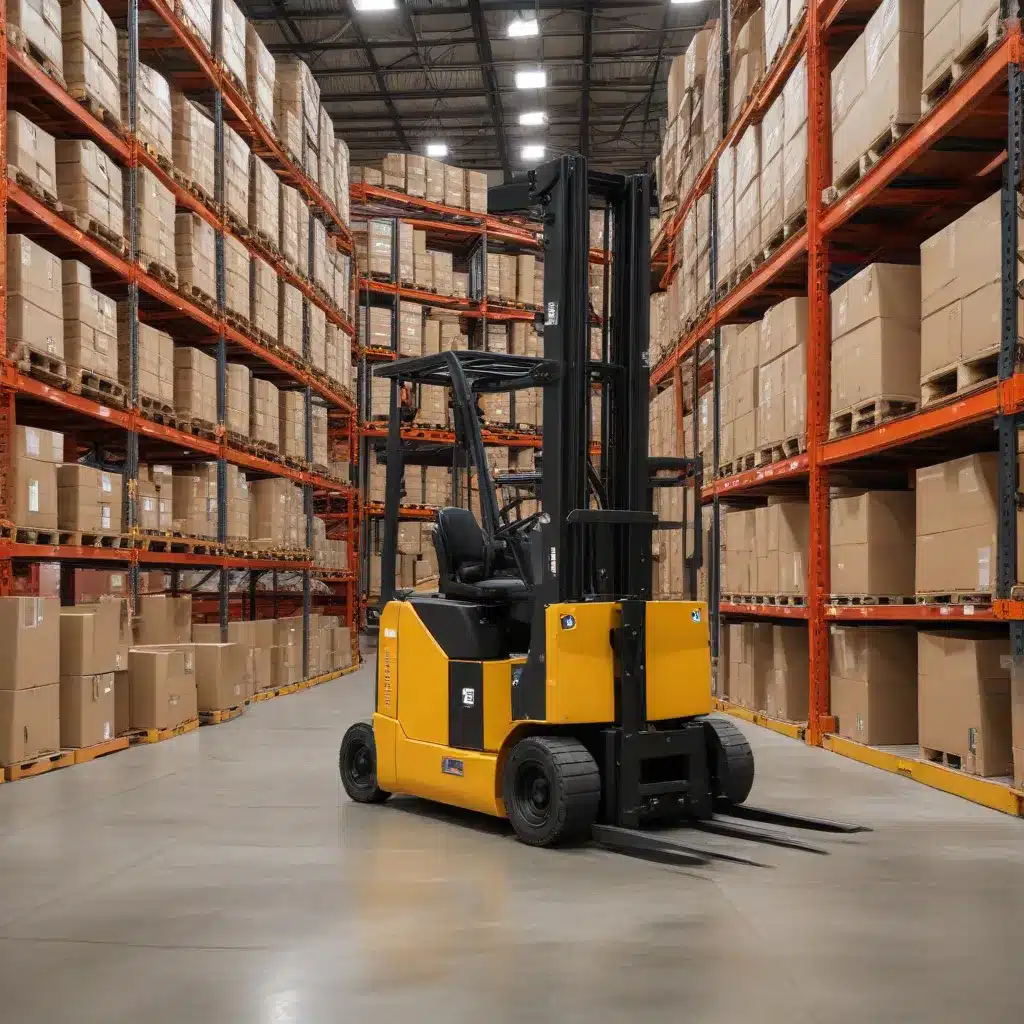
The Rise of Autonomous Forklift Technology
The logistics and warehousing industry is undergoing a transformative shift with the emergence of autonomous forklift technology. These advanced machines are redefining the landscape of material handling, offering enhanced efficiency, safety, and productivity. As the global autonomous forklift market experiences rapid growth, driven by the increasing adoption of automation, it’s clear that these intelligent forklifts are poised to revolutionize the way we approach warehouse operations.
At the heart of this revolution are the key drivers propelling the widespread adoption of autonomous forklifts. The labor shortage and rising labor costs in the logistics sector have become a significant challenge, leading businesses to turn to automation as a solution. Autonomous forklifts, capable of operating 24/7 without fatigue, can significantly improve productivity and fill the gaps left by the dwindling availability of skilled labor.
Safety Enhancements: A Game-Changer
One of the most compelling benefits of autonomous forklifts is their ability to enhance workplace safety. These machines are equipped with advanced safety features, such as collision avoidance systems, that help prevent accidents and injuries. In high-traffic warehouse environments, where human-operated forklifts can pose substantial risks, the integration of these safety protocols is a game-changer.
Technological Advancements Driving Autonomy
The rapid progress in autonomous forklift technology is largely driven by innovations in artificial intelligence (AI), machine learning, and sensor technologies. These advanced capabilities enable these machines to navigate complex environments, optimize routes, and make real-time decisions with a high degree of precision and efficiency.
AI and Machine Learning: Adapting to Dynamic Environments
Autonomous forklifts leverage AI and machine learning algorithms to navigate through intricate warehouse settings, constantly adapting to the changing landscape. These technologies allow the forklifts to learn from their experiences, continuously improving their performance and decision-making abilities. As they encounter new scenarios, they can quickly analyze and respond, making them increasingly capable of handling a wide range of tasks.
Sensor Integration: Enhancing Perception and Awareness
Modern autonomous forklifts are equipped with a diverse array of sensors, including LiDAR, cameras, and ultrasonic sensors. These sensors provide real-time data about the surrounding environment, enabling the forklifts to detect obstacles, identify load positions, and navigate with precision. This sensor integration is crucial for ensuring safe and efficient operations, as the forklifts can accurately perceive their surroundings and make informed decisions.
Fleet Management Systems: Optimizing Operational Efficiency
Advanced fleet management systems play a vital role in the successful deployment of autonomous forklifts. These systems allow businesses to monitor and control multiple autonomous forklifts simultaneously, providing real-time insights into the status and performance of each machine. By leveraging these systems, companies can optimize their forklift fleet, track operational metrics, and make data-driven decisions to enhance overall efficiency.
Transforming Warehouse Operations
The integration of autonomous forklifts is transforming warehouse operations across various industries, including manufacturing, logistics, and retail.
Warehousing and Logistics: Streamlining Material Handling
In warehouse settings, autonomous forklifts excel at tasks such as pallet handling, order picking, and loading/unloading. By automating these repetitive and labor-intensive processes, businesses can achieve significant improvements in efficiency and productivity. Autonomous forklifts can operate continuously without the need for breaks, ensuring a constant flow of materials and minimizing downtime.
Manufacturing: Optimizing Production Workflows
Within manufacturing facilities, autonomous forklifts play a crucial role in transporting raw materials, components, and finished goods. By seamlessly integrating these intelligent machines into the production process, manufacturers can streamline their workflows, reduce the risk of accidents, and enhance overall operational efficiency.
Retail: Revolutionizing Supply Chain Management
In the retail sector, autonomous forklifts are instrumental in managing inventory and streamlining supply chain operations. As e-commerce continues to grow, the demand for faster and more reliable delivery has increased. Autonomous forklifts, with their ability to handle materials with precision and efficiency, can help retailers meet these rising expectations and maintain a competitive edge.
The Future of Autonomous Forklift Technology
As the autonomous forklift market continues to evolve, several emerging trends and advancements are shaping the future of this transformative technology.
Integration with the Internet of Things (IoT)
The integration of autonomous forklifts with IoT systems will enable seamless communication between these machines and other devices within the warehouse ecosystem. This integration will foster greater operational efficiency, real-time monitoring, and data-driven decision-making, further enhancing the capabilities of these intelligent forklifts.
Collaborative Robots (Cobots): Humans and Machines Working in Harmony
The development of collaborative robots (cobots) that can work alongside human workers will further expand the versatility and utility of autonomous forklifts. By combining the strengths of human expertise and machine precision, these collaborative systems will create a more adaptable and efficient work environment.
Sustainable Solutions: Reducing Carbon Footprint
In response to the growing emphasis on environmental sustainability, there is a rising focus on developing eco-friendly autonomous forklifts that utilize alternative energy sources, such as hydrogen fuel cells. These sustainable solutions will not only contribute to a greener future but also provide cost savings and operational advantages for businesses.
Conclusion: Embracing the Autonomous Forklift Revolution
The autonomous forklift market is undoubtedly transforming the material handling landscape, offering enhanced efficiency, improved safety, and increased productivity for warehouses, logistics operations, and manufacturing facilities. As advancements in AI, machine learning, and sensor technologies continue to drive the evolution of these intelligent machines, the future of autonomous load handling looks promising.
By embracing this revolution, businesses can gain a significant competitive edge, optimize their workflows, and position themselves for long-term success in an increasingly automated industry. Forklift Reviews is committed to providing our readers with the latest insights, practical tips, and in-depth reviews to help navigate this exciting transformation in the world of forklift technology.

